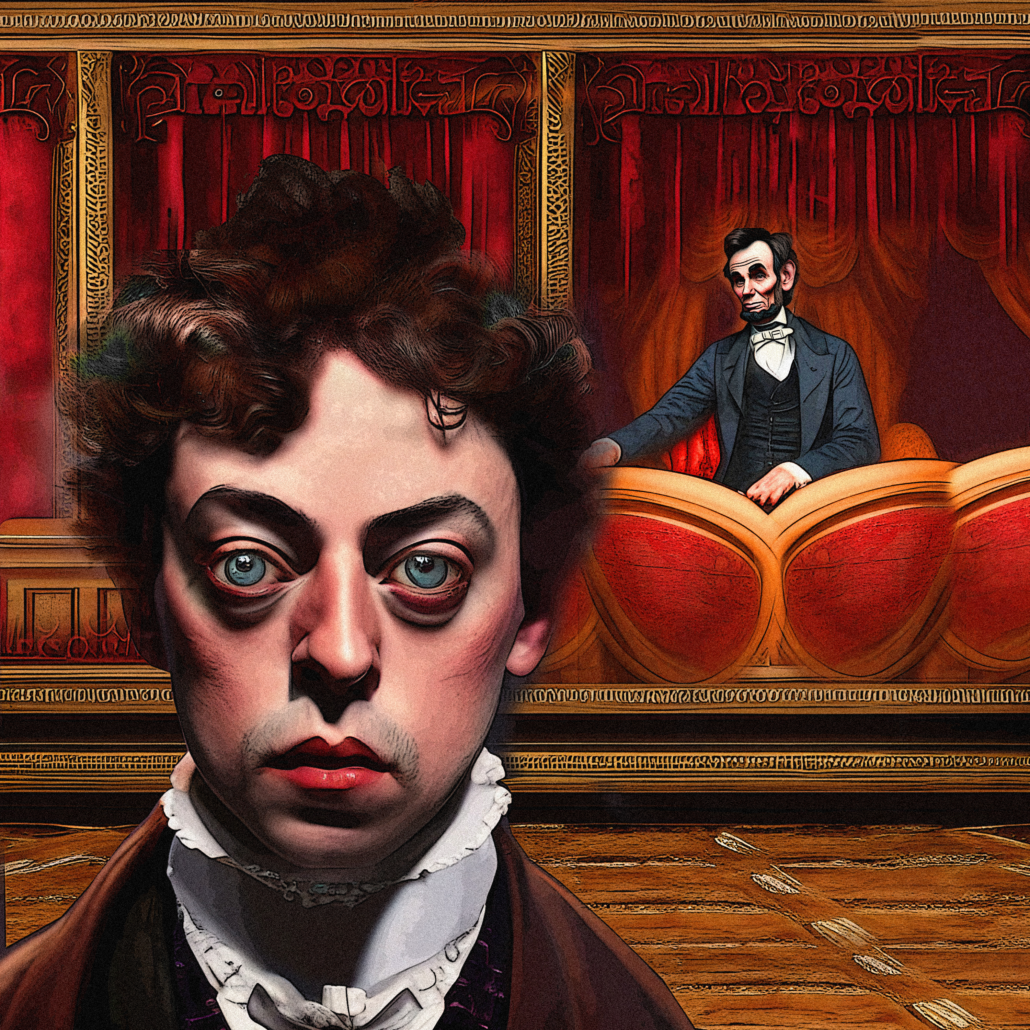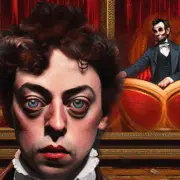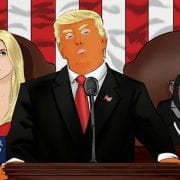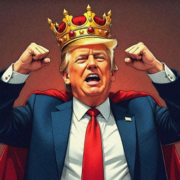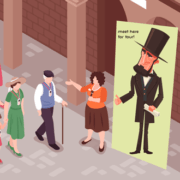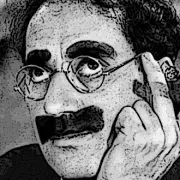The Forgotten Tragedy of the Night President Lincoln Died by the Ghost of Actor Harry Hawk
For over a century and a half, I have been a top-notch sport about the events of April 14, 1865, but even for a ghost, there comes a time when you can no longer hold your ethereal tongue. By venting my spleen via this overdue missive from beyond (do not get me started on the red tape here), I by no means wish to appear dismissive of the assassination that night of President Abraham Lincoln. It was, by any measure, (to use the verbiage of the modern man) a real bummer. I do not think we need to rehash the entire historical import of it all here on my parchment but for those who somehow need further reminder of the great man I believe there exist a plethora of worthless coinage and a nineteen-foot marble colossus in Washington, D.C. that might jog your memory.
However, I write today to remind you all of the other, forgotten, tragedy that occurred at Ford’s Theater that night – the assassination of my destiny as the greatest stage actor of all time thanks to the shecoonery of one John Wilkes Booth! So, I take quill to scroll to share my side and set straight the record of that fateful eve:
- I was, of course, playing the role of Asa Trenchard, the American cousin in Our American Cousin. So, yes, I was kind of a big deal.
- Accounts always refer to Booth as one of the finest actors of the age. Sure. But you know who wasn’t playing the lead in Our American Cousin? John Wilkes Booth.
- IMHO Booth the actor peaked a decade earlier when he portrayed Richard III in Baltimore. To put that in a measurement relatable to your current day, that is akin to cresting while playing Rum Tum Tugger in a normal school production of Cats.
- I have it on good authority that our producers had no interest in that average-talent dandy. That didn’t stop Booth from boring everybody with the fiction that he could have been cast in my part but for the director insisting he read for it which was apparently beneath him. Whatever. Divas shall diva.
- While historians regard Lincoln as a great president, he was a terrible theater goer. He and Mrs. Lincoln moseyed into their very visible box quite tardy, well after the start of show. Of course, our D.C.-social-climbing director halted the play, the crowd burst into prolonged, spontaneous applause which led the orchestra to play “Hail to the Chief” (which seemed like overkill if we are being honest. Nobody purchased a ticket to hear the band play). Unless you are a top thespian, I cannot expect you to fathom how difficult it is to transport the imaginations of a boodle of American patrons to an English country estate farce once, let alone twice. But transfix and transport I did. Damn, I was so in the zone.
- Back to Booth, the entirety of news reporting then and accounts since have fallen for his well-known-in-theater-circles knack for fudging his age. He was ever fearful of maturing out of leading man roles like Asa in Our American Cousin(I know. Meow). How else to explain that ridiculous “youthful hairdo” he sported to the end? In any event, he insisted playbills record his year of birth as 1838. I think 1831 would be a more accurate yet still generous guesstimate.
- Back to yours truly, I was killing my performance that night (no pun intended). Rumors had circulated that a talent scout from no less than New York’s Winter Garden Showcase was in attendance and I rose to meet both moment and opportunity. Cavorting about the proscenium, my Asa reached new heights of coarseness, vulgarity and extreme volume. By the time confused Asa douses himself in a shower while fully clothed, I had the audience under my command like a master puppeteer (including, I might add the most powerful man in the world who I spied guffawing, slapping his knee, and once spraying the fiancée of his box guest Major Rathbone due to a presidential spit-take). And even still, I knew my finest moment in the play was still yet to come.
- Alone on the stage midway through Act III, I deliver the line of lines. You know it well. Say it with me: “Well, I guess I know enough to turn you inside out, old gal; you sockdologizing old man-trap!” I know, I can scarcely pen the words such does my body quake with laughter. They just don’t write them like that anymore, do they? I knew that moment would punch my ticket to New York and superstardom. So, naturally, I nail the line, slaying my rapturous audience (perhaps not the finest turn of phrase given the circumstances, but paper and ink are not cheap so onward) when the shot rings out from the president’s box. As you can imagine, the distraction pretty much stopped the show flow like an Edison phonograph scratch.
- Now, I know the conventional wisdom is Booth despised Lincoln for defeating his beloved Confederacy, advocating for voting rights for emancipated slaves yadda-yadda. It has also been accepted that, knowing the play well, he chose that specific moment because the guaranteed laughter would mask the report of his teeny tiny gun (as if my delivery of the line had nothing to do with the cacophony that night). But Booth was also a petty, jealous little prima donna fop. What if he just could not bear to witness my success and glory and thought shooting the president would steal the spotlight as we say in the biz of show? I am just asking the question.
- Of course, typical melodramatic, over-the-top Booth tried to leap from the box to my stage, got his spur caught up in a flag and landed most ungracefully with a thud. He was notoriously bad at hitting his marks so little surprise there. Mr. Drama taking the whole “break a leg” thing a bit literally (I know. Meow two times). Limping about and waving a wee Arkansas toothpick over his age-inappropriate mop of hair, he then mumble-screamed something in Latin (way to read the room, John) before vamoosing off stage. He really was the worst.
The rest, as they say, is history. The run of the production ceased immediately relegating yours truly to but a forgotten footnote on your Wikipedias, rather than capturing my intended destiny as a global headliner.
It is my fondest wish that, with this new witness’ account, each of you will understand that on that ghastly April evening, our country lost far more than its elected leader, hopes for peaceful post-war restoration and its collective innocence. It also lost the incalculable contribution of the laughter, tears, and thrills that I would have provided from stages across our great and, as I understand it still (really?), divided nation had my destiny not been disrupted and derailed at Ford’s Theater. A most tragic night for America, indeed.
Your Most Humble & Obedient Spirit,
Harry Hawk
